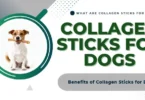Has your pet dog been displaying unusual behavior lately? If you’ve noticed your dog scooting across the floor, it might be a sign of discomfort or an underlying issue that needs attention. While it can be concerning to witness, the good news is that there are effective home remedies to address this behavior. In this article, we’ll explore the reasons behind dog scooting. We will provide practical solutions to help your beloved pet find relief.
Understanding Dog Scooting

What is Dog Scooting?
Dog scooting refers to the action of a dog dragging its rear end across the ground or floor. This behavior can be a sign of various underlying issues that may require your attention. It’s important to observe your dog’s scooting patterns and look for additional symptoms to determine the cause.
Common Reasons for Dog Scooting

Dog scooting butt can be triggered by several factors, including:
- Anal Gland Issues: Full or impacted anal glands can lead to discomfort, prompting your dog to scoot in an attempt to relieve the pressure.
- Worm Infestation: Intestinal parasites, such as worms, can cause irritation and itchiness around the anal area.
- Skin Irritation or Allergies: Skin problems or allergies can lead to itching and scooting as your dog tries to alleviate the discomfort.
Identifying the Cause
Anal Gland Issues: Anal glands are small sacs located near your dog’s anus. These glands produce a scent that is normally released during bowel movements. However, if the glands become blocked or overly full, they can cause discomfort. Your vet can manually express the glands or show you how to do it at home if necessary.
Worm Infestation: Worms can be a common cause of scooting, especially if your dog hasn’t been regularly dewormed. You may notice other symptoms like vomiting, diarrhea, or visible worms in the stool.
Skin Irritation or Allergies: Skin allergies or irritation from certain foods can lead to scooting. Check for redness, rashes, or bumps around the anal area, and consider adjusting your dog’s diet to identify potential allergens.
Dog Scooting Home Remedies

Regular Anal Gland Expression
Learn how to safely express your dog’s anal glands or have your vet demonstrate the process. This can help prevent buildup and discomfort.
Dog Hygiene and Cleaning: Keep your dog’s rear end clean and dry. Use gentle, pet-safe wipes to clean the area and prevent bacterial growth.
Dietary Adjustments: Switch to a high-quality, hypoallergenic dog food that avoids common allergens. Consult your vet before making any significant dietary changes.
Adding Fiber to the Diet: Increasing dietary fiber can promote healthy bowel movements and prevent anal gland issues. Pumpkin puree is a palatable option.
Dog Scooting: Soothing Your Dog’s Discomfort

Coconut Oil Application: Coconut oil has soothing and anti-inflammatory properties. Apply a small amount to the irritated area to alleviate itching.
Chamomile Tea Rinse: Brew chamomile tea, let it cool, and use it as a gentle rinse for your dog’s rear end. Chamomile’s anti-itch properties can provide relief.
Aloe Vera Gel: Aloe vera gel can help soothe and heal irritated skin. Make sure to use a pure, natural gel without added chemicals.
Dog Scooting: When to Consult a Veterinarian

Persistent Dog Scooting: If your dog’s scooting persists despite home remedies, consult your vet. It could indicate a more serious underlying issue.
Presence of Blood or Pus: The presence of blood, pus, or a foul odor warrants immediate veterinary attention.
Dogs Behavioral Changes: If your dog’s behavior changes alongside scooting, such as lethargy or loss of appetite, consult a vet to rule out health problems.
Preventing Future Incidents
Proper Hygiene for Dogs: Maintain good hygiene by regularly cleaning your dog’s anal area and keeping the surrounding fur trimmed.
Dog Regular Vet Check-ups: Schedule routine vet check-ups to catch any potential issues early and ensure your dog’s overall well-being.
Dog Grooming and Coat Care
Regular grooming and proper coat care can prevent skin issues and discomfort that may lead to scooting.
Conclusion
In most cases, occasional scooting is not a cause for alarm and can be managed with the right approach. By understanding the underlying causes and implementing these effective home remedies, you can help your dog find relief from discomfort and maintain their overall health. Remember, attentive care and prompt action are key to ensuring your furry friend’s well-being.
Frequently Asked Questions (FAQs)
-
Can I express my dog’s anal glands at home?
It’s possible to learn the process, but consult your vet first to ensure you’re doing it safely.
-
How can I tell if my dog has worms?
Look for symptoms like vomiting, diarrhea, scooting, or visible worms in the stool.
-
Is coconut oil safe for dogs?
Yes, coconut oil can be safe and soothing for dogs, but use it in moderation.
-
When should I seek professional help for my dog’s scooting?
If scooting is persistent, accompanied by blood or pus, or linked to behavioral changes, consult a veterinarian.
-
How often should I groom my dog to prevent skin issues?
Regular grooming every 4-6 weeks, or as recommended for your dog’s breed and coat type, can help prevent skin problems.




